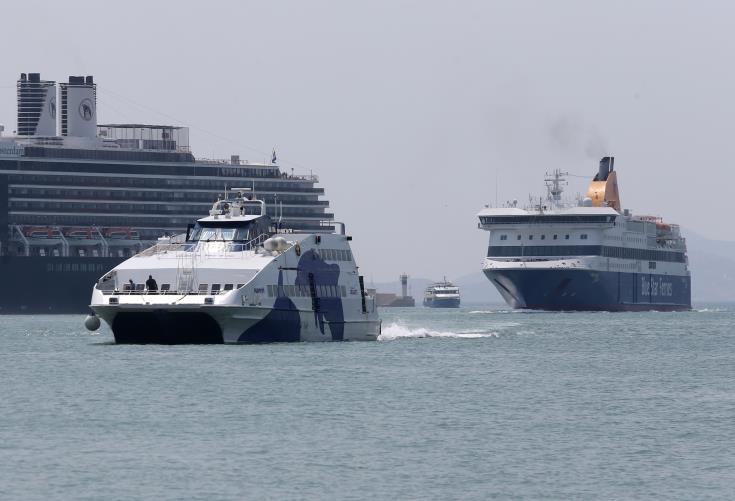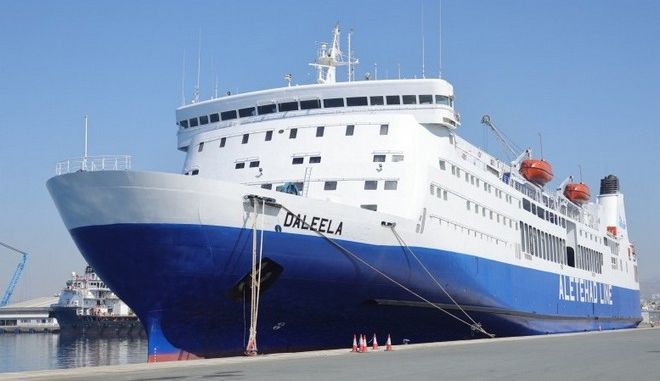As part of their “Fit for 55” package to address the climate crisis, shipping-related proposals issued by the European Commission may prove ineffective, the biggest shipping organisation in Cyprus warned.
Despite acknowledging the need for immediate action from all stakeholders to face the climate crisis, the new measures “greatly impact European shipowners and undermine global efforts” to meet the required environmental objectives, the Cyprus Shipping Chamber said.
On July 14, the European Commission adopted a series of legislative proposals setting out how it intends to achieve climate neutrality in the EU by 2050, including the intermediate target of at least 55% net reduction in greenhouse gas emissions by 2030.
The package proposes to revise several pieces of EU climate legislation, including the EU ETS, Effort Sharing Regulation, transport, and land use legislation, setting out in real terms how the Commission intends to reach EU climate targets under the European Green Deal.
“The inclusion of shipping in the EU Emissions Trading System (ETS) Directive and the FuelEU Maritime proposals in the package, while intended to accelerate the sector’s energy transition to cleaner fuels, do not ensure that absolute emissions reductions will be achieved,” the Chamber said.
The CSC argued that decarbonisation of the shipping industry is a global and not a regional challenge.
As a regional market-based measure, the EU ETS will seriously undermine the ongoing international efforts and negotiations at IMO towards the sector’s decarbonisation.
“It could lead to similar retaliatory measures by major economies outside the EU, thereby weakening the possibilities for a global solution for the shipping industry.”
The very complex characteristics of the shipping industry, with numerous ship types, trades, contractual relationships, and stakeholders involved, make the ETS with a fluctuating carbon price, a system that will negatively impact the many small and medium-sized shipowners who form the backbone of European shipping, the CSC added.
Revenues
Furthermore, generated revenues should support the sector’s energy transition.
“It is important that revenues from the ETS should be used to support investment in research and development, as it is acknowledged by all that decarbonisation will only be possible with the development of fuels and technologies that do not currently exist.”
Also, shipping’s decarbonisation “should not fall solely on the shoulders of the shipowners, but it should be a collective effort by all stakeholders involved in the maritime transportation supply chain such as the charterers, cargo owners, fuel suppliers, engine manufacturers, shipbuilders and ports.
“In this respect, the Chamber welcomes the recognition of the role of the commercial operator in the proposal for the inclusion of shipping into the EU ETS.”
However, the CSC cautioned that the FuelEU Regulation, which promotes cleaner fuels’ market uptake, is not commercially available.
“Rather than imposing a fuel mandate on fuel suppliers, as is the case with other modes of transport, it unfairly targets the ship operators, who cannot be held responsible for either the quality or the availability of specified fuels.”
It added the FuelEU proposal introduces “a second administrative burden” in addition to the MRV system, whereby shipping companies will be subjected to a new separate system of reporting and verification of the carbon intensity of the fuels used onboard.
“This, coupled with penalties for those companies that fail to meet the targets due to no fault of their own, but due to the unavailability of specified fuels, will further and unfairly burden the shipping industry.”
The Chamber said it looks forward to working with the Cyprus flag, the European Parliament, the European Commission, and other stakeholders to adopt a pragmatic and realistic approach.
“Our aim remains to develop rules that are not only environmentally ambitious in theory but also workable in practice and compatible with our industry’s international characteristics.”










